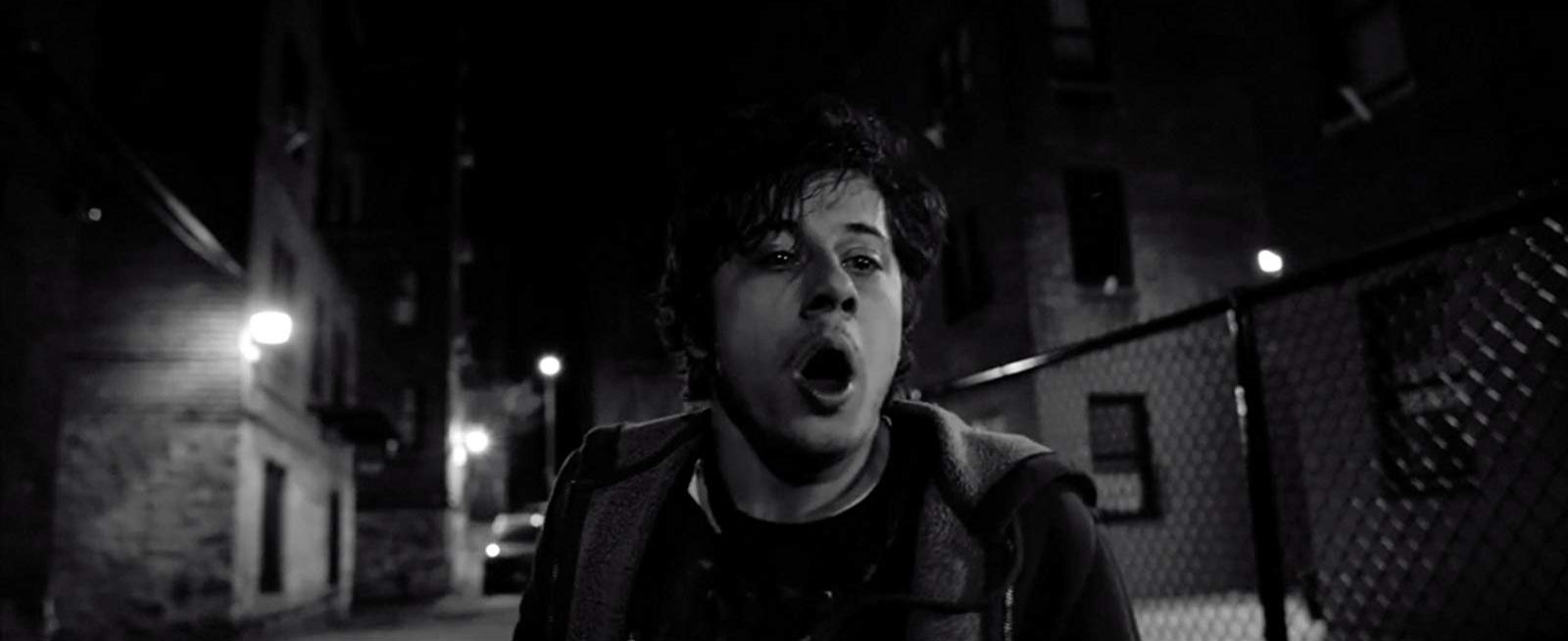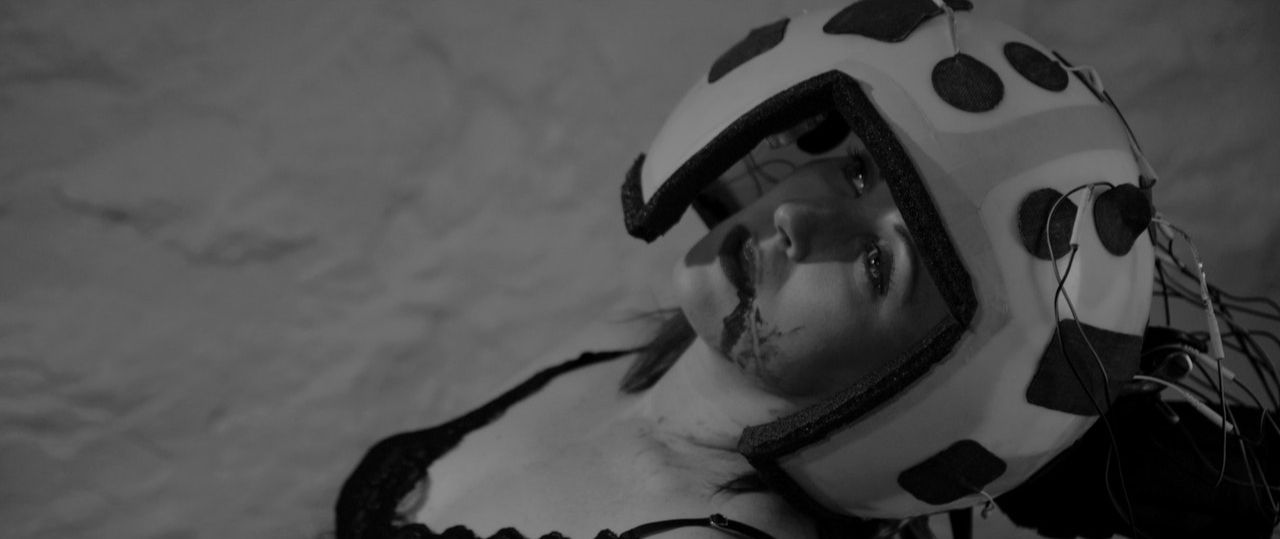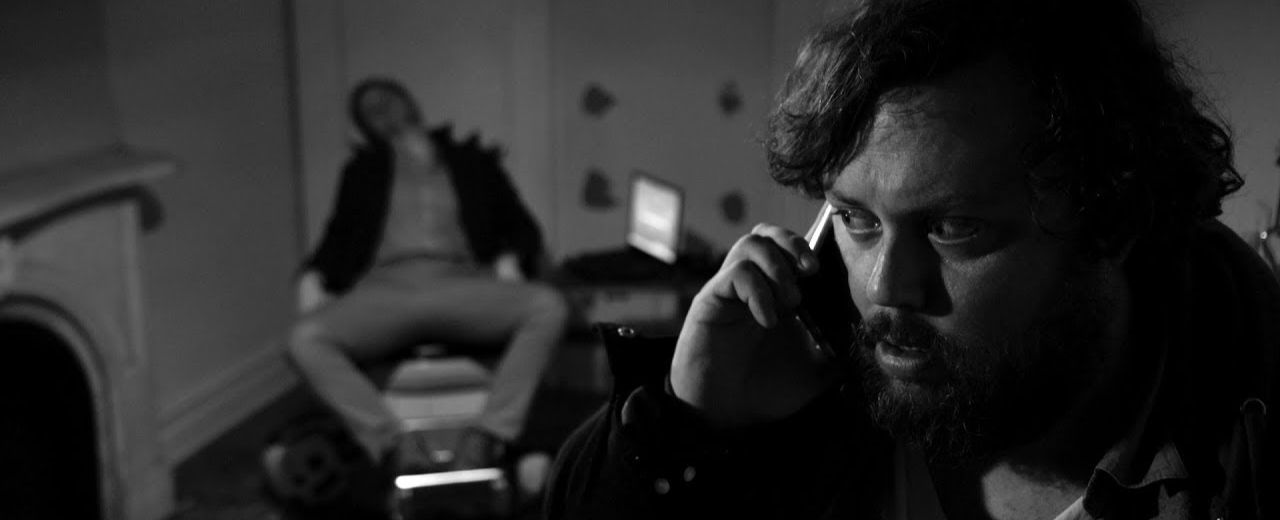Hotshot venture capitalist Joel has a multimillion-dollar deal go up in smoke, and he and his actress wife Jessica are forced to move in with her parents and start from scratch. At the lowest and most desperate moment in his life, Joel meets old friend Nicolaus and his business partner Lester, who are seeking investors in a new technology known as XVR-Xtreme Virtual Reality-from their company Empathy, Inc., which is said to offer the most realistic and moving experiences for users by placing them in the lives of the less fortunate. Joel gets the startup its funds but soon discovers that the tech's creators have far more sinister uses in store for their creation and that the reality it provides its customers isn't virtual.
What's it like to walk a mile in someone else's shoes? In Yedidya Gorsetman's imaginative new sci-fi thriller Empathy, Inc. is in theaters today from Dark Star Pictures (L.A; expanding to other markets September 13) and VOD (9/24). We got a chance to talk to the director about his new movie, creating science fiction, and shooting it all in black and white.
You're from New York?
I grew up in Manhattan.
Your surname suggests your family weren't originally from the U.S. What's the background there?
My surname goes back to Russia, I think. Someone once told me the G and C are interchangeable in Russian, which could mean my last name was something like Corsetman. So maybe someone in my line made corsets or something.
Were any of your family in showbiz?
My sister was really into performing and did some off-Broadway acting for a couple years, so our household was full of performative energy, and my parents were definitely supportive of that, but I wouldn't say I'm from a showbiz family.
What about films? Were your parents big movie buffs?
My parents liked movies but they weren't movie buffs. My real movie education came as a result of a family friend. We used to vacation at a lake cabin, and one of our friends at a neighboring cabin had a VCR. I never really cared for the lake, so I'd hang out at her cabin a lot. She loved horror, so my summers were spent watching stuff like The Birds, The Exorcist, The Shining, etc. That was my intro to this world.
What about yourself, growing up?
I was pretty obsessed. For some reason, I didn't like TV shows. Whereas I think most of my friends would watch cartoons after school, I'd always want to watch a movie. There was a long time where I probably watched a movie a day, often the same ones over and over: Silence of the Lambs, Annie Hall, The Waterboy, whatever was around.
And have some of your favorite films inspired Empathy, Inc - if so, what?
There have been a lot of films that inspired Empathy, Inc. On the sci-fi end, you have Pi and Primer, two films that play with huge ideas with a very limited palate. On the tonal end, inspirations include Being John Maklovich, some of the the darker Coen Brothers' films, and Hitchcock. That seems like a mish-mash, but I think they all have in common a mixture of "normal" people and memorably oddball characters grappling with an extreme premise or story hook.
The closest comparison to Empathy, Inc. might be Primer. But it's storyline is considerably different, isn't it?
Yes, Primer and Empathy, Inc. do share an important context: they both attempt to convey a full sci-fi drama with limited resources. But whereas Primer is a masterpiece of tonal understatement, Empathy, Inc. has a different modus operandi. Tonally it's more ironic, more Twilight Zone-y, and maybe more in common with Being John Malkovich. There are moments of silliness and surrealism. That being said, references to other masterpieces of the form are hard to do without sounding egotistical. We are lucky to even be in the same breath as these other groundbreaking films.
Was it hard to execute this grand idea at first?
It was hard in every single phase of the process. But perhaps only in the sense that any idea is very, very hard to execute. Even when it's easy, it's hard. The writing is hard, until one day you have a draft. Financing is hard, until one day you meet your goal. Production is the hardest, until one day you finish and it's like fever dream breaking and you don't even remember what you've been doing for the last month. All you know is you got what you came for. Then editing is excruciating, until one day you or your editor make the last revision and it's done. It seems at every point there's an opportunity to doubt your vision, to correct your vision, or to believe in your vision, and you kind of have to do all three simultaneously while moving forward as fast as you can.
I imagine you had to do a lot of reading, too - to brush up on your VR?
Only a little. In truth, all our research we did was filtered through the narrow lens of what we could achieve with our production team, our resources, and what was possible for us cinematically. The research was driven by story. The most important research we did was ask ourselves, what will make people want to believe this could be real. What research did they do on Back To The Future? Did they go back in time? No. It's just the DeLorean's flaming tire tracks, Christopher Lloyd's performance, Marty's character, and all the problems he gets into the past that makes the technology of time travel seem real. If the structure of the story and craft behind the filmmaking is solid, the illusion of the plot device usually takes care of itself. At one point we added copper wiring to the insides of the helmets. Was this based on research? No. It was based on production design and cinematography. The camera would pick up the glint off the wire and give the helmet more texture. It's very subtle, but I think it's things like that, and the actor's performances, that make you suspend disbelief.
What was the motivation behind shooting in black-and-white?
We experimented with a bunch of things, but B&W best fit the noir feel we were going for. As a side-effect it also simplified lighting, wardrobe, and some effects, so we could spend more time on actors' performances, which I think helps sell the plot device and ultimately adds more to the suspension of disbelief than other things. I also hoped that B&W would give the story a feeling that it takes place in world unto itself, a time and place that is both the past and the future, that feels nostalgic as well as cutting edge, kind of like how any movie about technology made in the 90s feels today. If you watch The Matrix or The Thirteenth Floor or Cube today, those worlds feel both outdated and advanced. The black-and-white was a way to push that further.
Would you like to see more films shot in black and white?
I'm indifferent. Most of the movies I'm excited to see happen to be in color, but if the trailer looks interesting, I'll watch anything, no matter what it's visual style. To me, the greatest effect of black and white is making you feel like you're in a different universe, which is something I really like, but there's a million ways of doing that, and we chose black-and-white because it was just the best one for this particular story.
Can you tell us about the roll-out plan for the film? It's hitting theaters this month, I believe?
We'll be in theaters around the country starting September 13th and on VOD on September 24. We're really excited for audiences to be able to see the film.

![Empathy Inc. Director Yedidya Gorsetman Talks About Creating His Sci-Fi Thriller [Exclusive]](https://static1.moviewebimages.com/wordpress/wp-content/uploads/article/NZfdGmSTArBC3jdvsDT7XBOnrYnFSN.jpg)


